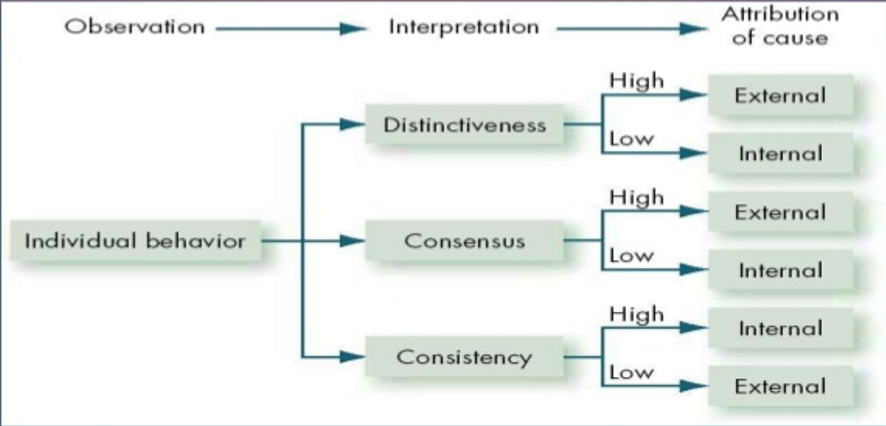Perception includes all those processes by which an individual receives information about his environment—seeing, hearing, feeling, tasting and smelling.
Joseph Reitz
Perception is the process of becoming aware of situations, of adding meaningful associations to sensations.
B V H Gilmer
the process by which individuals organize and interpret their sensory impressions in order to give meaning to their environments.
S P Robbins
Factors influencing perception
The Situation
- Time
- Work setting
- Social setting
The Target
- Size
- Intensity
- Background
- Novelty
- Proximity
- Motion
The Perceiver
- Attitudes
- Motivations
- Interests
- Experiences
- Expectations
Errors in perception
Attribution Theory
Attributions are inferences that people make about the causes of events and behaviour. People make attributions in order to understand their experiences. Attributions strongly influence the way people interact with others.

-
Internal Attribution: Attributing behaviour to internal factors such as personality, mood, or effort.
- Example: If Jane is often late to work (high consistency) while others are not (low consensus) and she is also late to other events (low distinctiveness), one might attribute her lateness to her being unorganized or lazy (internal attribution).
-
External Attribution: Attributing behaviour to external factors such as the environment or situational circumstances.
- Example: If many employees are late to work because of heavy traffic (high consensus), Jane is usually on time but late today (low consistency), and she is not late to other events (high distinctiveness), one might attribute her lateness to the unusual traffic (external attribution).
Selective Perception
is caused by the following:
- Interests
- Background
- Experience
- Attitudes
Halo effect
- A halo effect is a judgement based on a single striking characteristic such as an aspect of the way they talk, dress gestures, looks, posture or nationality.
- Haloes can be positive or negative.
- Positive perception leads to social behaviour
- Negative perception leads to antisocial behaviour
Contrast effects
Evaluation of a person’s characteristics that is affected by comparisons with other people recently encountered who rank higher or lower on the same characteristics
Stereotyping
It means judging someone on the basis of one‘s perception of the group to which that person belongs.